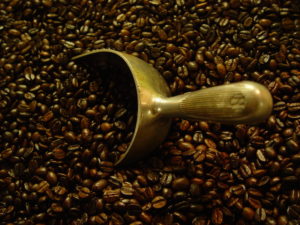From: Bret S. Stetka, MD | Medscape.com August 19, 2015
Earlier this year, the Dietary Guidelines Advisory Committee (DGAC) released a report[1] stating that up to five cups of coffee per day, or up to 400 mg of caffeine, is not associated with long-term health risks. Not only that, they highlighted observational evidence that coffee consumption is associated with reduced risk for several diseases, including type 2 diabetes, cardiovascular disease (CVD), and neurodegenerative disorders. The body of data suggesting that moderate coffee—and, in all likelihood, tea—consumption is not only safe but beneficial in a variety of mental and medical conditions is growing fast. Based primarily on recent Medscape Medical News coverage, the following [is a review of] the potential medical and psychiatric benefits of coffee consumption.
Interpreting the Data
A 2012 study of over 400,000 people, published in the New England Journal of Medicine, reported that coffee consumption is associated with a 10% reduction in all-cause mortality at 13-year follow-up.[2] A large meta-analysis[3] published in the American Journal of Epidemiology in 2014 also reported significant reductions in all-cause as well as CVD-related mortality associated with consuming three to four cups of coffee per day. It’s important to note that much of the evidence on the potential health effects of coffee, caffeine, and other foods and nutrients is associational and doesn’t prove causality—observational investigations come with limitations and often rely on error-prone methods such as patient questionnaires. However the sheer volume of existing observational data linking coffee and/or caffeine with various health benefits—as well as, in many cases, evidence of a dose response—suggests that the most widely consumed stimulant in the world has positive influences on our health.
Cardiovascular Disease
It may seem counterintuitive: A substance known to increase blood pressure might actually be good for the cardiovascular system. Caffeine consumption can cause a short-lived increase in blood pressure, and regular use has been linked to a longer-term increase. However, when caffeine is ingested via coffee, enduring blood pressure elevations are small and cardiovascular risks may be balanced by protective properties. Coffee beans contain antioxidant compounds that reduce oxidation of low-density lipoprotein (LDL) cholesterol, and coffee consumption has been associated with reduced concentrations of inflammatory markers.[4-9] Moderate coffee intake is associated with a lower risk for coronary heart disease as far out as 10 years,[5] and data suggest that an average of two cups per day protects against heart failure.[10] Finally, a study[11] presented during a poster session at the Heart Rhythm Society 2015 Scientific Sessions counters the long-held dogma that patients with arrhythmias should avoid caffeine, finding no association between the compound and premature atrial or ventricular contractions. Medscape contributor Dr John Mandrola recently wrote, “This abstract changes my practice. And here we have a medical reversal that is cause for celebration.”
Cerebrovascular Disease and Stroke
The vascular benefits of coffee are not lost on the brain. According to a 2011 meta-analysis,[12] consuming between one and six cups per day reportedly cut stroke risk by 17%. A 22%-25% risk reduction was seen in a large sample of Swedish women followed for an average of 10 years.[13] And while coffee’s impact on stroke risk in those with CVD is still in question, a meta-analysis presented at the 2012 European Meeting on Hypertension and Cardiovascular Protection found that one to three cups per day may protect against ischemic stroke in the general population.[14] A 2013 study of over 80,000 Japanese adults without CVD reported that those who drank coffee or green tea for a mean duration of 13 years had a 20% lower risk for stroke than those who seldom drank the beverages.[15]
Diabetes
Despite coffee’s association with increased blood pressure, the steamy brew appears to confer benefit to other aspects of so-called “metabolic syndrome,” the dangerous cluster of hypertension, hyperglycemia, abnormal lipid levels, and increased body fat. Numerous studies have linked regular coffee drinking with improved glucose metabolism, insulin secretion, and a significantly reduced risk for diabetes.[16-19] Most recently, findings from a long-term study published this year[20] suggest that coffee drinkers are roughly half as likely to develop type 2 diabetes as are nonconsumers, even after accounting for smoking, high blood pressure, and family history of diabetes. High levels of serum amyloid and C-reactive protein, both inflammatory markers, preceded the onset of diabetes in non–coffee drinkers, suggesting that coffee’s anti-inflammatory properties might confer its protective effects. Experts have suggested that coffee’s inverse correlation with diabetes might also be in part due to its containing chlorogenic acid, a plant compound with antioxidant properties thought to reduce glucose absorption.[21]
Cancer
With so many foods thought to increase cancer risk—soda, alcohol, and grilled meats among them—at least we can rest easy when it comes to coffee (according to recent data, anyway). Evidence suggests that moderate to heavy coffee consumption can reduce the risk for numerous cancers, including endometrial (> 4 cups/day),[22] prostate (6 cups/day),[23] head and neck (4 cups/day),[24,25] basal cell carcinoma (> 3 cups/day),[26] melanoma,[27] and breast cancer (> 5 cups/day).[28,29] The benefits are thought to be at least partially due to coffee’s antioxidant and antimutagenic properties.[22,24]
Neurodegeneration
Beyond the short-term mental boost it provides, coffee also appears to benefit longer-term cognitive well-being. A 2012 study reported that patients with mild cognitive impairment and plasma caffeine levels of > 1200 ng/mL—courtesy of approximately three to five cups of coffee per day—avoided progression to dementia over the following 2-4 years.[30] On a related note, a study from last year[31] reported that caffeine consumption appears to enhance memory consolidation. Corresponding studies in mice suggest that caffeine suppresses enzymes involved in amyloid-beta production, while coffee consumption boosts granulocyte colony-stimulation factor, interleukin-10, and interleukin-6 levels, cytokines thought to contribute to the reported benefits. Caffeinated coffee has long been thought to be neuroprotective in Parkinson disease (PD)—recent work found that variants in the glutamate-receptor gene GRIN2A affect PD risk in coffee drinkers[32]—as well as in multiple sclerosis.[33] Furthermore, research from 2012 suggests that drinking coffee may prevent the formation of Lewy bodies, a signature pathologic finding in PD.[34]
Depression
A 2011 study suggests that a boost in coffee consumption might also benefit our mental health[35]: Women who drank two to three cups of coffee per day had a 15% decreased risk for depression compared with those who drank less than one cup per week. A 20% decreased risk was seen in those who drank four cups or more per day. Newer work also suggests that regular coffee drinking may be protective against depression.[36] The short-term effect of coffee on mood may be due to altered serotonin and dopamine activity, whereas the mechanisms behind its potential long-term effects on mood may be related to its antioxidant and anti-inflammatory properties, factors that are thought to play a role in depressive illnesses.[37-40]
References
1.The Office of Disease Prevention and Health Promotion. Scientific Report of the 2015 Dietary Guidelines Advisory Committee. http://health.gov/dietaryguidelines/2015-scientific-report/10-chapter-5/d5-5.asp Accessed August 6, 2015.
2.Freedman ND, Park Y, Abnet CC, et al. Association of coffee drinking with total and cause-specific mortality. N Engl J Med. 2012;366:1891-1904.
3.Crippa A, Discacciati A, Larsson SC, Wolk A, Orsini N. Coffee consumption and mortality from all causes, cardiovascular disease, and cancer: a dose-response meta-analysis. Am J Epidemiol. 2014;180:763-775.
4.Larsson SC, Orsini N. Coffee consumption and risk of stroke: a dose-response meta-analysis of prospective studies. Am J Epidemiol. 2011;174:993-1001.
5.Wu JN, Ho SC, Zhou C, et al. Coffee consumption and risk of coronary heart diseases: a meta-analysis of 21 prospective cohort studies. Int J Cardiol. 2009;137:216-225.
6.Natella F, Nardini M, Belelli F, et al. Coffee drinking induces incorporation of phenolic acids into LDL and increases the resistance of LDL to ex vivo oxidation in humans. Am J Clin Nutr. 2007;86:604-609.
7.Gómez-Ruiz JA, Leake DS, Ames JM. In vitro antioxidant activity of coffee compounds and their metabolites. J Agric Food Chem. 2007;55:6962-6969.
8.Nardini M, D’Aquino M, Tomassi G, et al. Inhibition of human low-density lipoprotein oxidation by caffeic acid and other hydroxycinnamic acid derivatives. Free Radic Biol Med. 1995;19:541-552.
9.Montagnana M, Favaloro EJ, Lippi G. Coffee intake and cardiovascular disease: virtue does not take center stage. Semin Thromb Hemost. 2012;38:164-177.
10.Mostofsky E, Rice MS, Levitan EB, Mittleman MA. Habitual coffee consumption and risk of heart failure: a dose response meta-analysis. Circ Heart Fail. 2012;DOI:10.1161/CIRCHEARTFAILURE.112.967299. http://circheartfailure.ahajournals.org Accessed August 6, 2015.
11.Dixit S, Stein PK, Dewland TA. Consumption of “healthy” caffeinated products and cardiac ectopy. Program and abstracts of the Heart Rhythm Society 2015 Scientific Sessions; May 13, 2015; Boston, Massachusetts. Abstract PO01-113.
12.Larsson SC, Orsini N. Coffee consumption and risk of stroke: a dose-response meta-analysis of prospective studies. Am J Epidemiol. 2011;174:993-1001.
13.Larsson SC, Virtamo J, Wolk A. Coffee consumption and risk of stroke in women. Stroke. 2011;42:908-912.
14.D’Elia L, Cairella G, Garbagnati F, et al. Moderate coffee consumption is associated with lower risk of stroke: meta-analysis of prospective studies. J Hypertension. 2012;30 (e-Supplement A):e107.
15.Kokubo Y, Iso H, Saito I, et al. The impact of green tea and coffee consumption on the reduced risk of stroke incidence in Japanese population: The Japan public health center-based study cohort. Stroke. 2013;44:1369-1374.
16.Huxley R, Lee CM, Barzi F, et al. Coffee, decaffeinated coffee, and tea consumption in relation to incident type 2 diabetes mellitus: a systematic review with meta-analysis. Arch Intern Med. 2009;169:2053-2063.
17.Sartorelli DS, Fagherazzi G, Balkau B, et al. Differential effects of coffee on the risk of type 2 diabetes according to meal consumption in a French cohort of women: the E3N/EPIC cohort study. Am J Clin Nutr. 2010;91:1002-1012.
18.Floegel A, Pischon T, Bermann MM, et al. Coffee consumption and risk of chronic disease in the European Prospective Investigation into Cancer and Nutrition (EPIC) Germany study. Am J Clin Nutr. 2012;95:901-908.
19.Bhupathiraju SN, Pan A, Manson JE, et al. Changes in coffee intake and subsequent risk of type 2 diabetes: three large cohorts of US men and women. Diabetologia. 2014;57:1346-1354.
20.Koloverou E, Panagiotako DB, Pitsavos C, et al. The evaluation of inflammatory and oxidative stress biomarkers on coffee–diabetes association: results from the 10-year follow-up of the ATTICA Study (2002–2012). Eur J Clin Nutr. 2015 Jul 1. [Epub ahead of print]
21.Vinson JA, Burnham B, Nagendran MV, et al. Randomized double-blind placebo-controlled crossover study to evaluate the efficacy and safety of a green coffee bean extract in overweight subjects. Program and abstracts of the 243rd American Chemical Society National Meeting and Exposition; March 25-29, 2012; San Diego, California. Abstract 92.
22.Je Y, Hankison SE, Tworoger SS, et al. A prospective cohort study of coffee consumption and risk of endometrial cancer over a 26-year follow-up. Cancer Epidemiol Biomarkers Prev. 2011;20:1-9.
23.Wilson KM, Kasperzyk JL, Rider JR, et al. Coffee consumption and prostate cancer risk and progression in the Health Professionals Follow-up Study. J Natl Cancer Inst. 2011;8;103:876-884.
24.Turati F, Galeone C, La Vecchia C, et al. Coffee and cancers of the upper digestive and respiratory tracts: meta-analyses of observational studies. Ann Oncol. 2011;22:536-544.
25.Galeone C, Tavani A, Pelucchi C, et al. Coffee and tea intake and risk of head and neck cancer: pooled analysis in the international head and neck cancer epidemiology consortium. Cancer Epidemiol Biomarkers Prev. 2010;19:1723-1736.
26.Song F, Qureshi AA, Han J. Increased caffeine intake is associated with reduced risk of Basal cell carcinoma of the skin. Cancer Res. 2012;72:3282-3289.
27.Loftfield E, Freedman ND, Graubard BI, et al. Coffee Drinking and Cutaneous Melanoma Risk in the NIH-AARP Diet and Health Study. J Natl Cancer Inst. 2015;107(2). pii: dju421. doi: 10.1093/jnci/dju421. Print 2015 Feb.
28.Li J, Seibold P, Chang-Claude J, et al. Coffee consumption modifies risk of estrogen-receptor negative breast cancer. Breast Cancer Res. 2011;13:R49.
29.Bhoo-Pathy N, Peeters PHM, Uiterwaal C, et al. Coffee and tea consumption and risk of pre- and postmenopausal breast cancer in the European Prospective Investigation Into Cancer and Nutrition (EPIC) cohort study. Breast Cancer Res. 2015;17:15. doi: 10.1186/s13058-015-0521-3.
30.Cao C, Loewenstein DA, Lin X, et al. High blood caffeine levels in MCI linked to lack of progression to dementia. J Alzheimer Dis. 2012;30:559-572.
31.Borota D, Murray E, Keceli G, et al. Post-study caffeine administration enhances memory consolidation in humans. Nature Neuroscience. 2014;17:201-203.
32.Hamza TH, Chen H, Hill-Burns EM, et al. Genome-wide gene-environment study identifies glutamate receptor gene GRIN2A as a Parkinson’s disease modifier gene via interaction with coffee. PLoS Genet. 2011;7: e1002237.
33.Mowry E, Hedstrom A, Gianfrancesco M, et al. Greater Consumption of Coffee is Associated with Reduced Odds of Multiple Sclerosis. Neurology. April 6, 2015;84(14).Supplement S45.004.
34.Ross W, Duda J, Abbott R, et al. Association of coffee caffeine consumption with brain Lewy pathology in the Honolulu-Asia Aging Study. Program and abstracts of the 64th Annual Meeting of the American Academy of Neurology; April 21-28, 2012; New Orleans, Louisiana. Abstract S42.005.
35.Lucas M, Mirzaei F, Pan A, et al. Coffee, caffeine, and risk of depression among women. Arch Intern Med. 2011;171:1571-1578.
36.Brooks M. Sweetened drinks may boost depression, coffee reduces it. Medscape Medical News. January 9, 2013. http://www.medscape.com/viewarticle/777356 Accessed August 17, 2015.
37.Lucas M, Mirzaei F, Pan A, et al. Coffee, caffeine, and risk of depression among women. Arch Intern Med. 2011;171:1571-1578.
38.Pasco JA, Nicholson GC, Williams LJ, et al. Association of high-sensitivity C-reactive protein with de novo major depression. Br J Psychiatry. 2010;197:372-377.
39.Ng F, Berk M, Dean O, Bush AI. Oxidative stress in psychiatric disorders: evidence base and therapeutic implications. Int J Neuropsychopharmacol. 2008;11:851-876.
40.O’Connor A. Coffee drinking linked to less depression in women. New York Times. February 13, 2012. http://well.blogs.nytimes.com/2011/09/26/coffee-drinking-linked-to-less-depression-in-women/ Accessed August 6, 2015.



